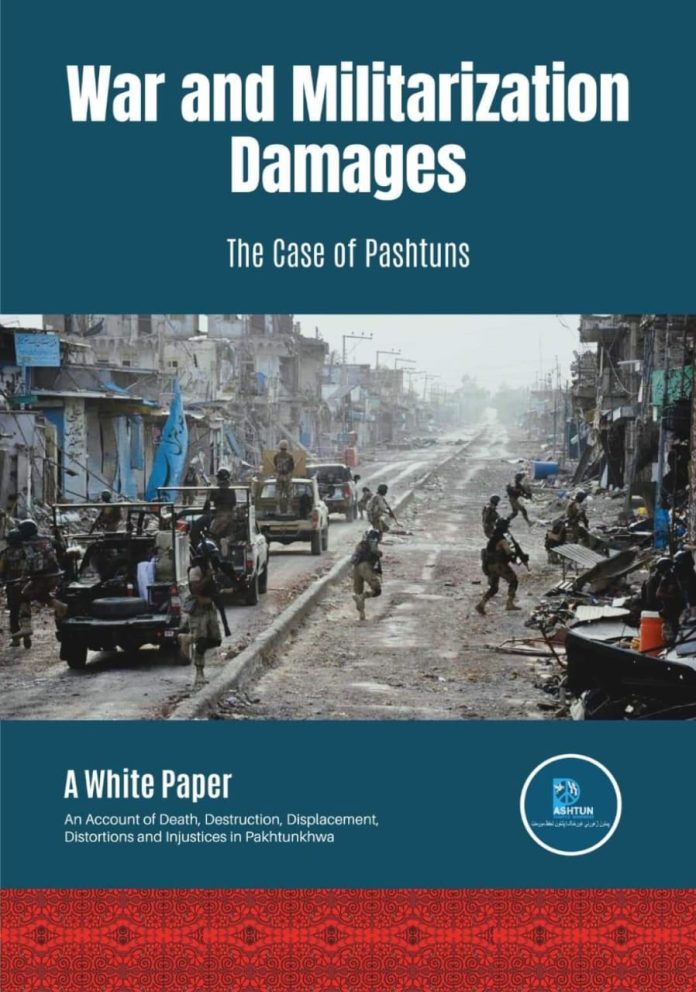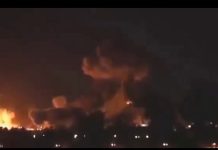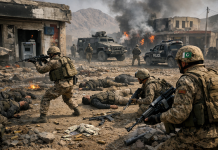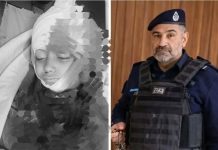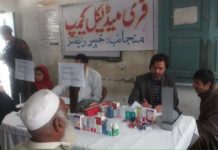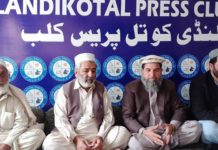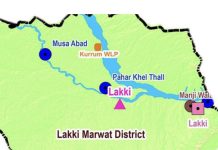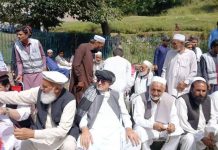Ashrafuddin Pirzada
LANDIKOTAL: The Pashtun Tahafuz Movement (PTM) on the third and last day of Pashtun national Jirga has released a comprehensive research white Paper titled “War and Militarization Damages, the case of Pashtuns” that had suffered the Pashtuns belt in the past decads.
Earlier in the three days of Pashtun Jirga, leaders of different political parties including Pakistan Tehreek-e-Insaf, Jamat-e-Islami and Awami National Party leaders visited and expressed their viewpoints.
The PTM leaders said that the white paper aimed to document the severe impacts of war, militarization and systemic injustices in Pakhtunkhwa. This groundbreaking report served as a foundational resource for discussions during the first day of the Pashtun national Jirga, highlighting the long-standing human and economic toll of war in the region.
The White Paper, based on extensive grassroots research and surveys conducted by PTM, underscores the following key findings from a comprehensive study of war damages and militarization across 26 districts in Khyber Pakhtunkhwa
The report highlighted the massive displacement of Pashtun citizens where over 3.7 million civilians were displaced as a result of military operations conducted in various parts of Khyber Pakhtunkhwa including ex-Fata.
The report also discussed that due to militancy and military operations, thousands of Pashtuns have not only been displaced but also disappeared.
PTM and Pashtun leaders of different political parties leaders said a large number of civilian casualties happened due to landmine incidents but the victims remained unaccounted for.
The white paper mentioned that the total number of terrorism-related fatalities in Pakistan from March 2000 to September 2024 amounted to 68,691, with 51,535 (approximately 75.03%) of these fatalities occurring in Khyber Pakhtunkhwa (KP), the erstwhile Federally Administered Tribal Areas (FATA), and the Pashtun districts of Balochistan.
The white paper also mentioned that the war on the Pashtun belt also resulted in economic devastation including
the collapse of key industries, with poverty rates exceeding 27% in conflict-affected areas.
It said widespread damages to schools and hospitals, particularly impacting women and children. An estimated 20 percent of damaged homes have been completely destroyed while the rest needed to be repaired.
PTM leaders raised their voices and demanded to remove the landmines from the tribal areas that had been placed to target militants. The PTM head Manzoor Ahmad Pahsteen said more than 178 landmine blasts were recorded in South Waziristan alone, resulting in 800 deaths due to landmine explosions. He said 250 children were left physically impaired while 77 individuals lost their sight after they came under the landmines blasts.
PTM leaders in the white papers said that approximately 4,000 cattle were killed in the landmine blasts while a large number were injured.
Pashteen said PTM has successfully registered 279 cases of landmine explosions and established a computerized record of these incidents.
Manzoor Pashteen said a total of 11 military operations were conducted in KP and ex-Fata in the past years. He said approximately 150 attacks on Compact Disk(CD) shops, music centers and events, destroying 1,000 to 1,500 shops in KP and ex-Fata.
He said 50 Sufi shrines have been attacked by militants, ending celebrations and music events associated with these sites.
The white paper also mentioned the current data on missing Persons.
It said a total of 4,952 missing persons were recorded across 26 districts. The PTM leaders said the research lighted the untold stories of Pashtun suffering and issued a strong call for justice, reparations, and accountability. It marks a significant step in addressing the grievances of Pashtuns as the region continues to grapple with the destructive legacy of war and militarization.
Manzoor Ahmad Pashteen in his address said that the White Paper would be published online on the official Jirga website simultaneously with the data presentation held in the Regilama area of Jamrud in Khyber district.


